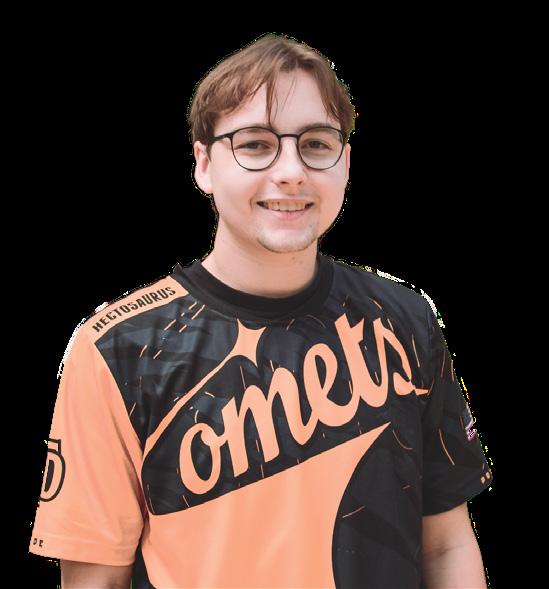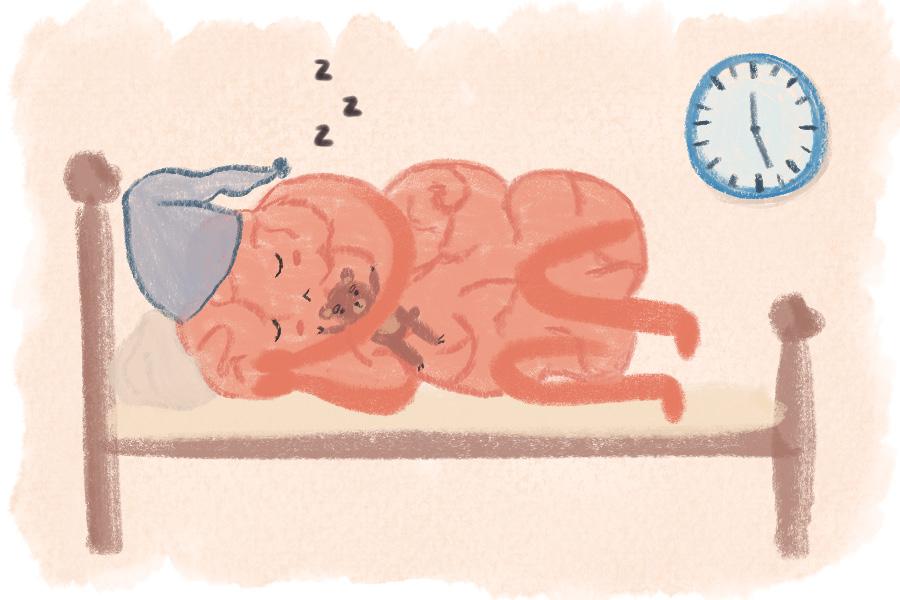
4 minute read
UTD ALUMnus PUTS NEW SPIN ON LGS FORMULA Innocence Project
from The Mercury 12 06 21
by The Mercury
Owner of Mystery MTG delivers shiny cardboard to customers just the way they like it - with more
BEN NGUYEN Managing Editor
Advertisement
A UTD alum is changing the way that trading card game players consume their so-called “cardboard crack” with a non-traditional LGS model and a focus on customer experience.
Alan Hussein is a UTD alum running the Mystery MTG card shop. He started it two years ago as a fully online retailer, wanting to change the way that people engaged with local game stores. A passionate MTG player himself, he wanted to start a business in a field he was interested in after leaving his previous company.
“What business do I think I would be passionate about? … Obviously it was a local game store. And we wanted to do it riskier, cooler, sexier than any game store that’s ever been started,” Hussein said. “We’ve quickly become one of the largest subscription-based companies for Magic the Gathering in North America, if not the world.”
And how is Mystery MTG the “sexier” game store? In comparison to most other stores, Mystery MTG offers a monthly crate service, similar to Loot Crate, that ships customers a package filled with different packs from various Magic sets as well as high value singles. One of the differences between Mystery MTG’s subscription service and other similar monthly services is a high guaranteed minimum value for the contents of each crate.
Buyers are guaranteed an 80% minimum value for the contents of any crate, and with the way that the MTG market is trending, crates that are shipped out by Mystery MTG will generally appreciate in value over time.
So, Hussein says that the prospect of opening older and rarer packs for a fraction of the price every month is appealing to players.
“The majority of our customers over the span of the year make money subscribing to our service because we send out the oldest, the most rare products in combination with newer products. So, there is a risk, but at the same time, there’s a huge allure to that.
Do you want to open a product from 2001, 2004, 1998? You do, and sometimes you don’t care what you get. Because that’s a nostalgic takeback to that time,” Hussein said.
“Now that you have the disposable income and you want to do that, you have a couple of options. Are you willing to buy that box worth a thousand dollars, or will you subscribe to us for 39 dollars a month and we’ll send you packs of the sets that you want?
That’s the way it works, and people love it.”
Even though there is a high guaranteed minimum value on each crate, Mystery MTG still makes money off the crates since not all crates are created equally. On top of this, they gain revenue through the general sale of single cards, board games and other related products. However, they also run raffles and sell specialty higher-value crates, and while they are running these at a loss, Hussein said they’re integral to sustaining their high customer retention.
“What it does though, when you get something that amazes you, is you become a long-term customer for that service. Our customers are die-hard. We’re one of the only services that have an 80% customer return rate,” Hussein said. “We have a very high average spend rate per customer. They like what they get, they know what they’re getting and there’s the verified authenticity aspect to it too.”
Soon, Mystery MTG will expand into a physical location on Campbell and Coit. Hussein has high aspirations for the space, from planning large MTG Arena esports events to hosting large in-person Magic events for thousands of players. Other stores have had their own challenges with Magic, with The Local Game Store notably not running Magic events on their schedule. Coowner Kyle Waple said that players are reluctant to leave stores they’ve been playing at for up to five or even 10 years. Hussein, however, said he’s prepared to attract a large audience to his location.
“Even with just our online services, we make more money per month than almost any other LGS, outside of Madness, in Texas. So, we already pull the majority of these
Alums Reunited As Public Defenders
RNG ALEENA HASSAN Mercury Staff
San Diego native Blake Eaton knew he wanted to be a lawyer ever since he was in middle school. After enrolling at UTD, he quickly became involved in Moot Court, Mock Trial and the Innocence Project — an initiative to exonerate wrongly convicted individuals. Today, he works alongside two other UTD alums in the San Diego Federal Defender’s office.
Magic players, and it’s because we do the craziest theme crates. We have just, a very exciting offering of products, and I think that these other LGS’s do everything in a very boring way. They are the exact same LGS that you walked into 20 years ago, and that’s why people are not coming back,” Hussein said. “They either align themselves with being a premium store or align themselves with being an affordable budget store. … I think a lot of people are looking for a store like ours where you are able to experience RNG in a way that you haven’t experienced before.”
With a physical location within walking distance of campus, Hussein wants the store to have all products on the shelves or available to purchase in-store, including the monthly
“A few years before I started college, there was a case regarding Cameron Todd Willingham in Texas. He was convicted and executed for setting a fire in a shed or something like that, which killed his children,” Eaton said. “For whatever reason, they thought it was deliberately set. They had this arson expert testify about patterns of the burn that only happen when you have an intentionally set burn, but since then, and since the state murdered him, the evidence is very convincing that it was an electrical fire or something completely accidental. He did not do it.”
At UTD, the Innocence Project is a class where students look at records from criminal cases and see if there’s a possibility that the defendant might be innocent. Eaton and other students in the class had to go beyond the normal legal issues and try to find other ways to prove that the defendants were innocent even after being convicted beyond a reasonable doubt.
“I think the biggest takeaway from [the class] was that you’ve got to get it right the first time,” Eaton said. “It got me thinking… you cannot just avoid messing up someone’s life, but you can actually do things that change the outcome for them. You're actually










